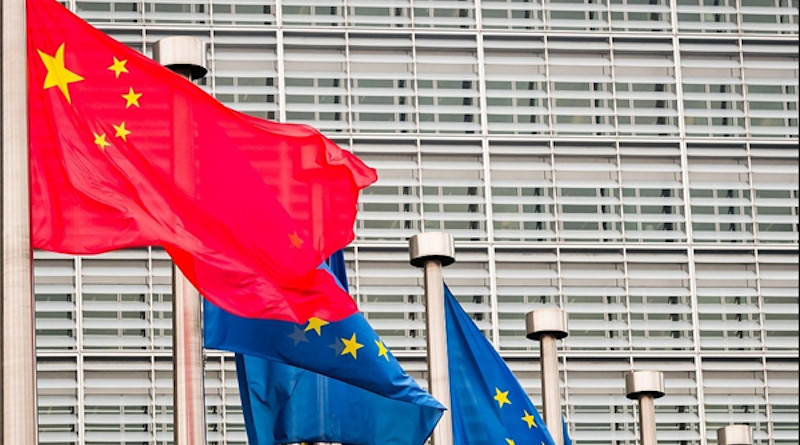China’s Lead In Green And Dirty Energy A Hurdle For EU Climate Agenda – Analysis
By Florian Klumpp
Climate change is projected to have significant, adverse effects on human lives, property and economic growth in China. Acknowledging this, Beijing updated its Climate Change Adaptation Strategy in 2022. But as the Chinese Communist Party has become hypersensitive to national security threats, climate change is now perceived as just one of the dangers to the country’s political and economic stability.
Climate actions are arguably primarily driven by concerns about regime stability, not threats to individuals or the biosphere. Amid weakening economic growth, Beijing wants to revisit and strengthen its legitimation strategies which are heavily based on ensuring material welfare and energy security. This helps to explain why it has heavily invested in the green transition.
At the same time, concerns about the phase-out of fossil fuels and the limited availability of certain raw materials needed for the green transition explains China’s position as a leader in both the geopolitics of green energy and in fossil fuel and raw materials import and use. This dual role not only slows down international progress on climate mitigation but also jeopardises China’s position as a green global actor.
In climate negotiations, Beijing adds its voice to the cohort of less developed countries, calling on developed countries to fulfil their commitments while portraying itself as a victim of and lead fighter against climate change. China has started to show genuine willingness to support the Global South in its mitigation and adaptation efforts, with energy-related Belt and Road engagement being the greenest ever in 2023.
At the same time, Beijing’s insistence on being categorised as a developing country, as defined in the 1992 UN Framework Convention on Climate Change, underpins its opposition to mandatory climate finance obligations. Understanding the real extent of the voluntary climate finance it provides is complicated, resulting in claims that China underperforms, while others rank China as the 11th and 7th largest provider of climate finance globally.
In any case, Beijing’s projection of itself as a green global actor is undermined by its dependency on fossil fuels and raw materials. These dependencies help understand why Belt and Road engagement has largely concentrated on energy and the mining of metals needed for the green transition.
Until recently, energy engagement was still heavily tilted toward fossil fuels, including as a means to secure access to oil and gas. This is not to mention the ongoing approval of massive, new domestic coal power capacities. The dual role played its part in Beijing’s decision to stay muted on phasing out fossil fuels at the 2023 United Nations Climate Change Conference, instead calling for greater renewables capacity to gradually substitute fossil fuels.
Beijing’s efforts to position itself as the climate leader of the developing world may become less viable over time. While the Global South can still largely unite behind Beijing’s references to unmet climate finance commitments or the concept of common but differentiated responsibilities, its resistance against binding financial obligations might increasingly alienate highly vulnerable members of the developing country group. Rapidly increasing cumulative emissions, continued investment in fossil fuel extraction abroad and unsustainable mining operations or investments will mount pressure.
But it is precisely China’s dual role that can also offer new opportunities for Annex I countries who are interested in cooperating with China on climate issues.
While the role of the United States in engaging China on climate issues remains crucial, players like the European Union are also important. To capitalise on China’s dual rule, the European Union is first required to live up to its own climate diplomacy responsibilities, especially concerning climate finance. Only then can it make real progress on climate action and realise its interest in becoming a green global actor.
On the bilateral front, the European Union is interested in cooperation with China to reduce the use of fossil fuels and to promote more constructive competition along the green tech value chain. The European Union should act with more confidence to encourage efforts that yield positive climate impacts. But insofar as constructive competition, let alone cooperation, is unrealistic, the European Union should better leverage China’s dependencies by making it clear that China also has a lot to lose from a growing lack of credibility in the international climate arena.
When it comes to its outreach to the Global South, the European Union should transform its messaging and actions. Brussels must be frank about its own dependencies while making clear that it wants to deal with them in a truly sustainable way. Underlying interests and needs for diversification should be clearly communicated, but benefits for partners must go beyond short-term monetary benefits.
This narrative must be backed up by action. This requires ensuring international initiatives like the Global Gateway can effectively compete with Chinese initiatives in a race to the top. Releasing lists of flagship projects, focusing heavily on green infrastructure and adaptation, are important first steps in this direction. But more action has to follow quickly.
Through greater cooperation with countries like Japan and India, more sustainable alternatives to Chinese initiatives can be offered on a greater scale, while simultaneously accelerating their green transitions. Without this, the European Union risks falling short of its objectives to drive climate action and sustainable development around the world.
- About the author: Florian Klumpp holds a Master of East Asian Economy and Society at the University of Vienna.
- Source: This article was published by East Asia Forum

